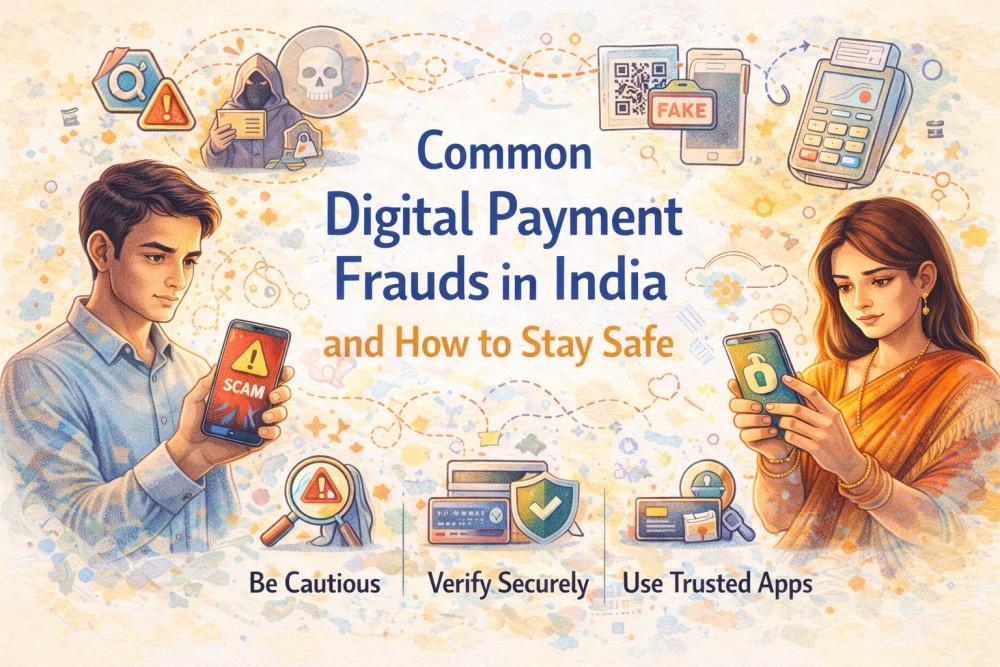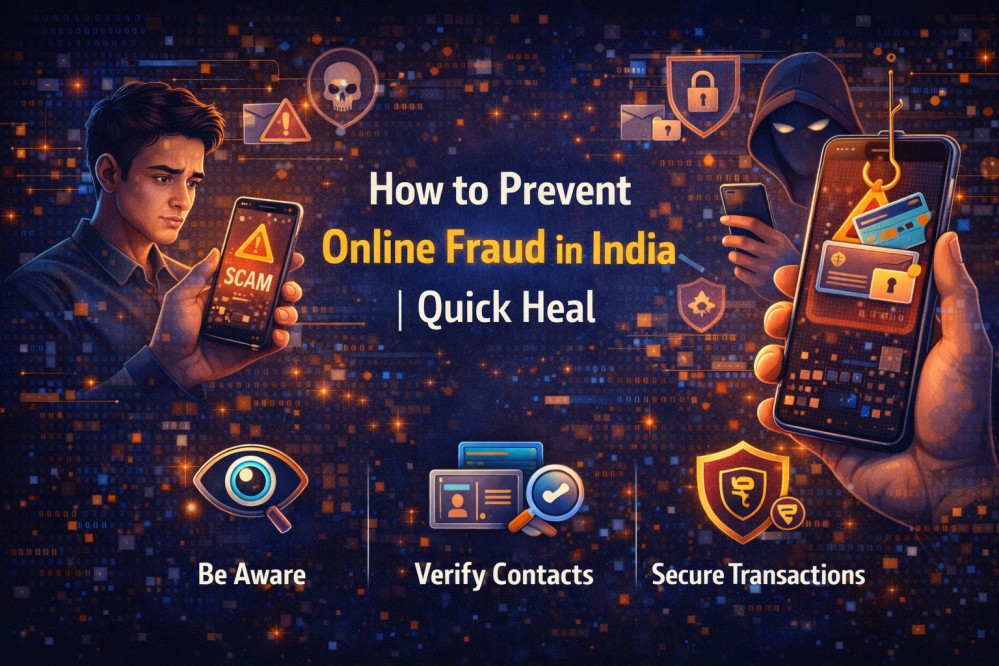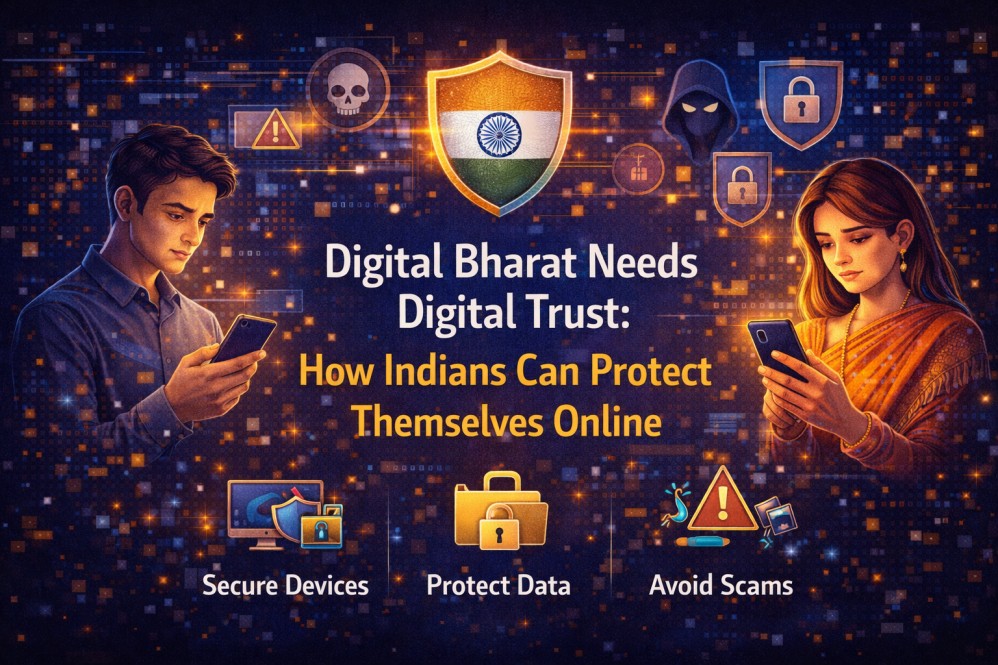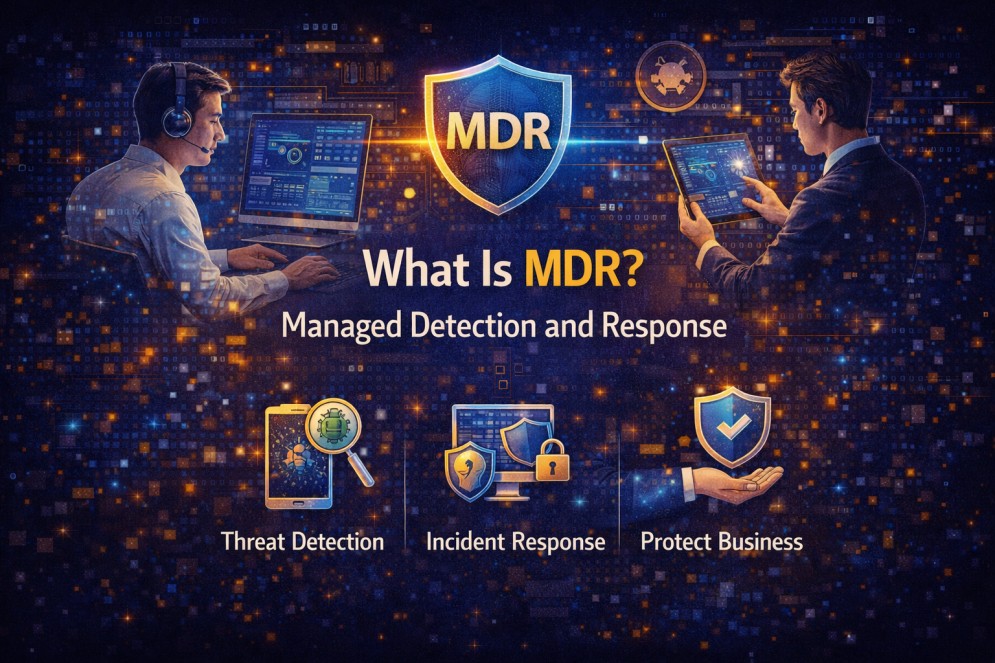
May

How to Detect and Report Cyberstalking: Essential Cybersecurity Measures
-
Quick Heal / 9 months
- May 27, 2025
- 0
Cyberstalking is a serious issue that has become increasingly prevalent with the rise of digital communication and social media. It involves using technology to repeatedly harass, threaten, or intimidate someone, causing significant distress and fear. Victims of cyberstalking often experience anxiety, depression, and a sense of vulnerability, as their privacy and safety are violated in the virtual world.
Cyberstalkers may be known to the victim, such as a former partner or acquaintance, or they may be complete strangers. Regardless of the perpetrator’s identity, it’s crucial to recognize the signs of cyberstalking and take proactive measures to protect yourself and seek help when needed.
Key Signs of Cyberstalking
Cyberstalking can take many forms, but some common behaviors include:
- Receiving excessive or threatening messages via email, text, or social media
- Being monitored or tracked online through spyware or GPS
- Having personal information shared or posted online without consent
- Experiencing identity theft or impersonation online
- Encountering fake profiles or websites created to harass or defame
If you notice any of these red flags, trust your instincts and don’t dismiss them as harmless. Documenting the incidents and seeking support can help you take control of the situation.
How Cyberstalkers Operate
Cyberstalkers employ various tactics to gather information about their victims and exert control over them. They may:
- Use social engineering techniques to trick you into revealing personal details
- Hack into your accounts or devices to access private information
- Install spyware or keyloggers to monitor your online activities
- Create fake profiles to interact with you or your contacts
- Manipulate search results or online reputation to discredit or humiliate you
Understanding these methods can help you stay vigilant and take steps to secure your digital presence.
Protect Your Privacy Online
To reduce your vulnerability to cyberstalking, it’s essential to safeguard your personal information and maintain strong online privacy habits:
- Limit the personal information you share online, especially on social media platforms, including your location, contact details, and daily routines.
- Use strong, unique passwords for each of your online accounts and enable two-factor authentication wherever possible.
- Review and adjust privacy settings on all your social media and online accounts to control who can see your posts and personal information.
- Avoid accepting friend or follow requests from strangers, and be cautious about who you interact with online.
- Regularly monitor your digital footprint by searching your name online to see what information is publicly accessible.
- Keep your devices and software updated to protect against security vulnerabilities that could be exploited by stalkers.
- Be cautious when using public Wi-Fi, and consider using a VPN to encrypt your internet connection.
- Report and block suspicious or threatening behavior immediately, and keep records of any harassment for potential legal action.
Report Cyberstalking to Authorities
If you are being cyberstalked, it’s crucial to report cyberstalking to the appropriate authorities. Here’s how:
- Document the evidence: Save copies of messages, screenshots, and any other relevant information related to the harassment.
- Contact local law enforcement: File a report with your local police department, as cyberstalking is a crime in most jurisdictions.
- Notify online platforms: Report cyberstalking online to the relevant websites, social media networks, or apps where the harassment occurred.
- Seek support from organizations: Reach out to victim support services or cybercrime units for guidance and resources.
Remember, you don’t have to face cyberstalking alone. Reporting the issue can help hold the perpetrator accountable and prevent them from harming others.
Seek Legal and Professional Help
In addition to reporting cyberstalking, consider seeking legal advice from an attorney specializing in cybercrime or harassment cases. They can help you understand your options, such as obtaining a restraining order or pursuing civil action.
Moreover, working with a cybersecurity professional can provide valuable guidance on strengthening your online defenses and mitigating the impact of cyberstalking. For example, Quick Heal Total Security offers comprehensive protection against digital threats, including phishing attempts, malware, and unauthorized access to your devices.
Know Your Rights and Cyberstalking Laws
Familiarize yourself with the laws and regulations surrounding cyberstalking in your jurisdiction. Many countries have specific legislation addressing online harassment. Cyberstalking is addressed under multiple legal provisions in India. Section 67 of the Information Technology Act, 2000 penalizes the publication or transmission of obscene material in electronic form, while Section 67A deals with sexually explicit content, both carrying imprisonment and fines.
Additionally, Section 354D of the Indian Penal Code (IPC) specifically criminalizes stalking, including monitoring a woman’s online activity without consent. First-time offenders may be granted bail, but repeat offenses are non-bailable. Understanding your rights can empower you to take action and hold perpetrators accountable. It can also help you navigate the legal system and advocate for yourself throughout the process.
Stay Safe with Quick Heal
Cyberstalking is a distressing and invasive crime that no one should have to endure. By staying informed, practicing good online privacy habits, and knowing how to report cyberstalking, you can better protect yourself and others from digital harassment.
Remember, if you are being cyberstalked, you are not alone, and it is not your fault. Reach out for help, document the evidence, and don’t hesitate to involve the authorities. With the right support and resources, you can reclaim your sense of safety and well-being in the digital world.
For an additional layer of protection, install Quick Heal Total Security. Stay vigilant, prioritize your online security, and never underestimate the importance of safeguarding your personal information. Together, we can create a safer, more respectful online environment for everyone.
Check Out Our Full Antivirus Range






